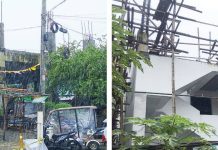
RAMPING up its efforts to help manage the country’s solid waste and create livelihood opportunities during the COVID-19 pandemic, San Miguel Corporation (SMC) has been buying bigger volumes of plastic wastes to fuel its cement manufacturing facilities.
This development is just part of the continuing efforts launched recently by the conglomerate, which include discontinuing its plastic bottled water business, building the country’s first recycled plastics road, and spending a billion pesos to rid major river systems of garbage.
Its affiliate Northern Cement Corporation (NCC) is now capable of consuming up to 1.5 million tons of plastic waste per year, allowing it to reduce the use of traditional fuel by about 50 percent.
According to SMC president and COO Ramon S. Ang, the technology to safely convert plastic waste to energy has existed for a long time.
“In fact, Northern Cement has been using this on a smaller scale. Other major manufacturers, both locally and globally, have also been using this. It’s a more environment-friendly and sustainable alternative to using traditional fuels,” he said.
The company’s plan to expand and intensify the use of plastic wastes for powering up NCC can now be implemented with the completion of its materials handling facility in Pangasinan.
With this, the company can safely collect and store plastic waste at scale and safely convert waste into energy to reduce landfill waste, lowering dependence on fossil fuels, and minimize greenhouse gas emissions.
“With our materials handling facility ready, we can now expand this program. We are calling on assemblers, local governments, and companies, to collect and sell your plastic wastes to us. Together, we can help our environment in a substantial way, and at the same time, create more livelihood opportunities for so many Filipinos during this time of pandemic,” he added.
He underscored that collecting and assembling plastic wastes could provide many struggling Filipinos with an additional or alternative source of income – even as the country continues to cope with the economic impacts of the COVID-19 pandemic – similar to how glass bottle collectors have become an integral part of SMC’s supply chain and recycling process for many decades now.
Aside from providing job opportunities, the cement produced will also go to the construction industry, which itself generates a significant amount of jobs, and also drives infrastructure development and economic growth.
“Instead of just hoping for a better tomorrow, we continue to look for actual solutions where we can get the best outcome for the greatest number of people,” Ang added.
While NCC’s technology can allow for all types of plastics to be processed and converted to energy, Ang said they are especially targeting plastic bottles, which make up a significant amount of total plastic waste in the world.
It can be noted that in 2017, SMC discontinued its Purewater plastic bottled water business to demonstrate its commitment to greater sustainability.
Apart from discontinuing its plastic bottled water business, SMC has, in recent years, made major strides in helping fight solid waste pollution in the country./PN






